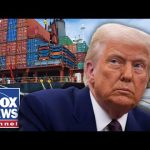In recent days, the situation surrounding immigration in Chicago has reached a critical point that demands attention. The city, long touted as a sanctuary for migrants, is facing a massive influx that has left local resources strained and city officials scrambling. Reports indicate that nearly 40,000 migrants have arrived in Chicago since the summer of 2022. The ramifications of this surge are not just a mere inconvenience; they pose a threat to the stability and security of the city.
Federal agents, particularly from Immigration and Customs Enforcement (ICE), are gearing up for an immigration crackdown in Chicago. Despite local leaders’ intentions to resist such actions, many residents are expressing a sense of relief that federal intervention is on the horizon. For too long, the sanctuary city policies have allowed for the rampant disregard of immigration laws, leading to an unstable environment. When local leaders choose to ignore their responsibilities, they put their communities at risk, and now they must face the consequences of those decisions.
Chicago has spent $299 million on the migrant crisis since 2022. The financial strain placed on taxpayers highlights the urgency of addressing this growing challenge. As Chicago grapples with this crisis, even some Democrats are starting to voice concerns about their party’s approach. Instead of working with the Trump administration to target illegal immigrants, Chicago’s leaders have chosen to dig their heels in, creating an environment where chaos thrives.
The presence of federal enforcement and the potential involvement of the National Guard signal a shift in strategy that these long-standing, misguided sanctuary policies could no longer be sustained. The concern among local officials about possible protests and property destruction only further underscores the ramifications of their decisions. When communities prioritize the influx of undocumented migrants over the safety and well-being of their residents, they invite instability and unrest. Chicago is now a prime example of how neglecting the rule of law can backfire.
Looking ahead, it is essential for citizens to understand the political implications of these developments. The Democratic leadership in Chicago may be underestimating the backlash that will follow as federal agents enforce immigration laws. Voter sentiment is shifting, and the prospect of increased federal presence—particularly during an election year—could dramatically affect outcomes at polling stations. It is not just about law enforcement; it is about restoring order, and for taxpayers who have borne the burden of these policies, this intervention may finally offer some hope for accountability and a return to the values that make this nation strong.
In conclusion, the immigration crisis in Chicago highlights the consequences of progressive policies that prioritize unfettered migration over the rule of law. As the city faces federal intervention, it serves as a wake-up call to leaders who continue to ignore the desires of the residents and the needs of their communities. With the eyes of the nation on Chicago, it is critical for local officials to recognize the importance of law and order, and to engage in a responsible dialogue on immigration that prioritizes American citizens and legal immigrants above all. The time for accountability is now.




